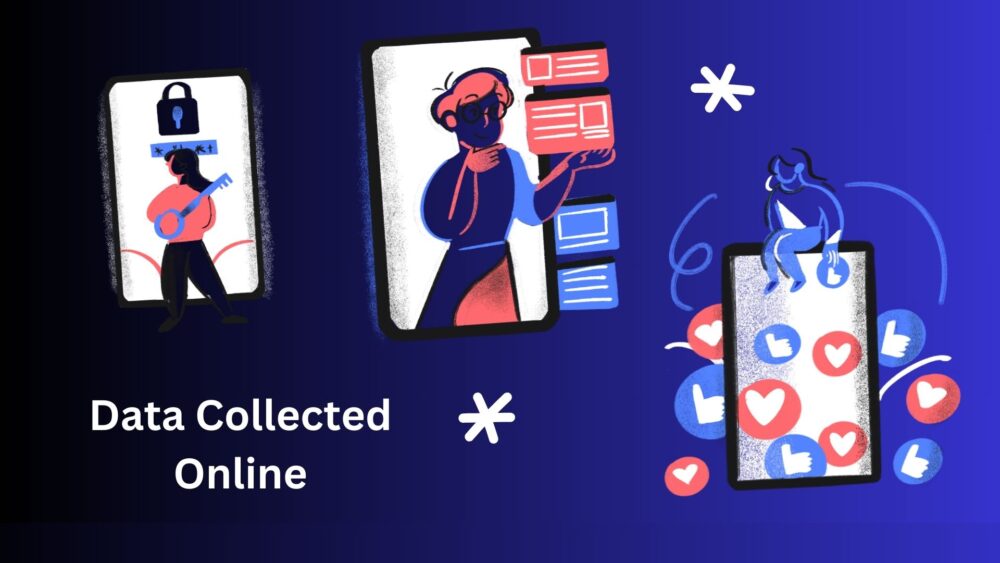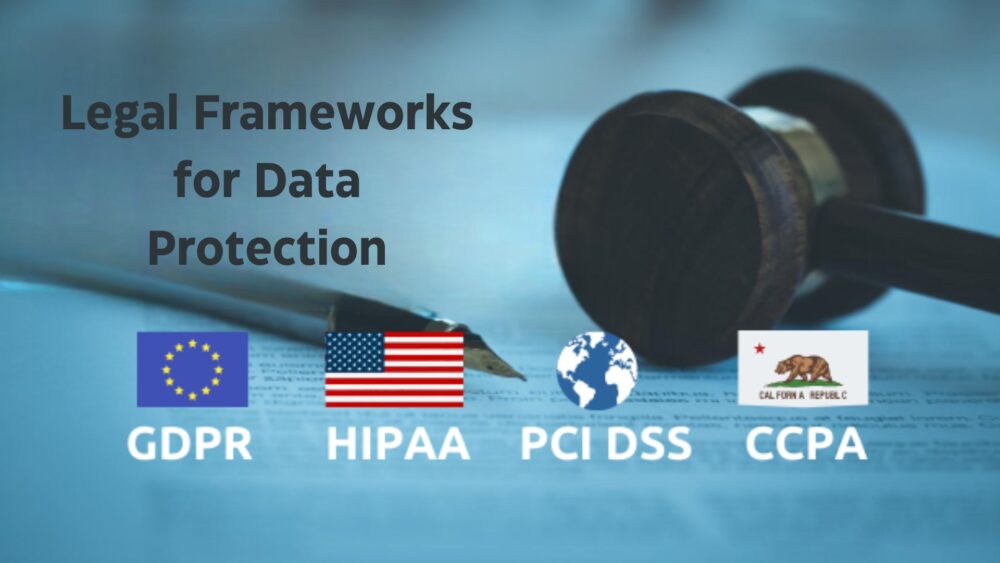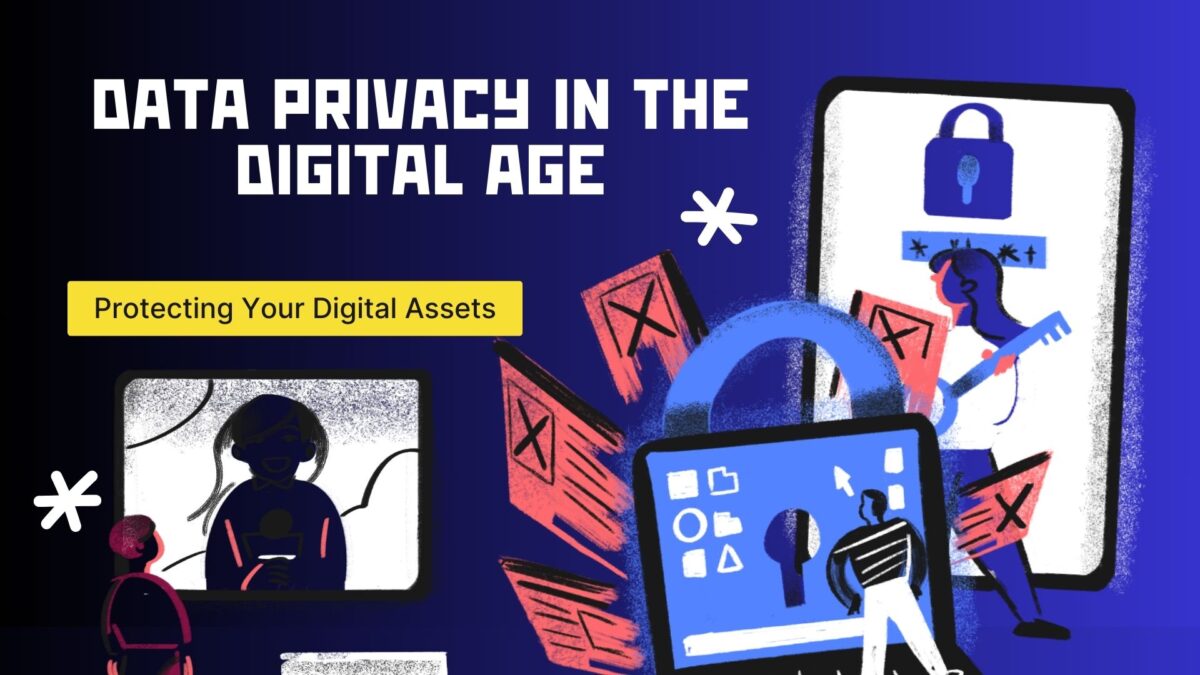In today’s hyper-connected world, data has become one of the most valuable commodities, often referred to as “the new oil.” Companies, governments, and cybercriminals all recognize its worth, leading to a rapidly evolving digital landscape where personal information is constantly collected, analyzed, and monetized. In 2018, the Facebook-Cambridge Analytica scandal exposed how personal data from millions of users was harvested and used to influence elections. This incident, among many others, underscores the urgent need for robust data privacy measures.
Data privacy, in its simplest form, refers to the right to control how personal information is collected, used, and shared. As our lives become increasingly digital, protecting personal data has become more critical than ever. This article explores why data privacy is so important in the digital age and the challenges we face in safeguarding it.
Understanding Data Privacy

What is Data Privacy?
Data privacy refers to the practice of handling sensitive data, such as personal information, in a manner that ensures it is not misused, leaked, or exposed to unauthorized parties. This includes ensuring that individuals’ data, such as names, addresses, phone numbers, and financial information, remains confidential and protected.
Types of Data Collected Online
The internet has become a vast network of data collection points. The types of data collected online include:
- Personally Identifiable Information (PII): Information that can be used to identify an individual, such as full names, Social Security numbers, email addresses, and phone numbers.
- Browsing Data: Data that tracks users’ online activities, including browsing history, search queries, and clicks.
- Behavioral Data: Collected by algorithms to track preferences, interests, and purchasing behavior, which is often used for targeted advertising.
- Location Data: GPS or IP-based tracking data that shows a user’s real-time or historical location.
How Data is Collected?
Data is collected in various ways across digital platforms:
- Cookies: These are small pieces of data stored on users’ devices that track browsing habits.
- Mobile Apps: Apps often request permissions to access personal data like contacts, messages, or location, often collecting more data than necessary.
- Internet of Things (IoT) Devices: Smart home devices such as thermostats, cameras, and wearables continuously gather data about their users.
- Social Media Platforms: These platforms store a wealth of information about users’ likes, interests, connections, and activities.
The Evolution of Data Privacy Concerns

Pre-Internet Era
Before the internet, privacy concerns were more localized, with personal data generally stored in physical formats. Government agencies, businesses, and medical facilities kept data in paper files, with minimal risk of mass-scale leaks or unauthorized access.
The Rise of the Internet
The dawn of the internet in the 1990s ushered in an era of rapid information sharing. The rise of social media, e-commerce, and cloud storage drastically increased the amount of personal data exposed to potential misuse. As people began uploading more of their personal lives online, businesses saw an opportunity to collect and exploit that data for marketing and other purposes.
Big Data and AI
The past decade has seen an explosion in the use of Big Data and artificial intelligence (AI). Companies now have the ability to analyze massive datasets to derive insights and predictions about users’ behavior. However, these advancements come with increased risks of data misuse, especially when large datasets containing sensitive information are not properly anonymized or protected.
Why Data Privacy is Crucial in the Digital Age
Protection of Personal Identity
In an age where cybercrime is rampant, protecting one’s personal identity has become essential. Identity theft is one of the fastest-growing crimes globally, costing individuals and businesses billions of dollars each year. Hackers often gain access to personal data through weakly protected databases or social engineering tactics, leading to financial fraud, account takeovers, and even blackmail. A real-world example is the 2017 Equifax data breach, where the personal data of 147 million people was exposed, including Social Security numbers and driver’s license information.
Data Misuse and Abuse
Many companies collect user data without providing full transparency on how that data will be used. In some cases, data is sold to third parties without the individual’s consent, leading to invasive marketing or, worse, manipulation, as seen in the Cambridge Analytica case. This undermines trust in digital platforms and creates a power imbalance between consumers and corporations.
Cybersecurity Threats
The intersection between poor data privacy and cybersecurity is stark. Weak data protection measures make organizations and individuals more vulnerable to cyberattacks, such as ransomware and phishing. Data breaches not only expose sensitive information but also erode public trust. One major breach can lead to a cascade of identity theft, financial loss, and damage to reputation.
Regaining Control Over Personal Information
Data privacy is also about regaining control over one’s personal information. In a digital world where user data is often harvested without explicit consent, the need for transparency and user control is greater than ever. Individuals have the right to know how their data is collected, processed, and shared, and to decide if they want to participate in such exchanges.
Legal Frameworks for Data Protection

Global Regulations
Governments around the world have enacted various laws to protect consumer data. The following are a few of the key frameworks:
- General Data Protection Regulation (GDPR): Enacted by the European Union in 2018, GDPR is one of the most stringent data protection laws. It requires companies to obtain explicit consent before collecting personal data, and it grants users the “right to be forgotten,” allowing them to request the deletion of their personal information.
- California Consumer Privacy Act (CCPA): A U.S. law that gives California residents the right to know what personal data companies are collecting and the ability to request its deletion.
- Health Insurance Portability and Accountability Act (HIPAA): This U.S. law safeguards individuals’ medical information, ensuring the confidentiality of sensitive health data.
- Children’s Online Privacy Protection Act (COPPA): This law protects the personal information of children under 13 by regulating how websites and online services handle their data.
Challenges in Enforcement
While these laws are a step in the right direction, enforcing them across borders and industries remains a challenge. Many companies operate globally, and different countries have different data privacy standards. Moreover, enforcement agencies often lack the resources to hold companies accountable, especially in cases involving smaller firms.
Compliance for Businesses
To comply with these regulations, businesses must implement a range of data protection measures. These include encrypting data, obtaining user consent before collecting personal information, and ensuring that data is anonymized or pseudonymized where possible. Businesses also need to be transparent about how they handle user data, including how it is stored, processed, and shared.
How Technology is Protecting Data Privacy?
Encryption and Secure Communication
Encryption is one of the most important tools for safeguarding data. By converting information into a secure code, encryption ensures that sensitive data remains protected while being transmitted or stored. Encrypted communication tools like Signal and ProtonMail have become popular choices for users seeking greater privacy.
Privacy by Design
Privacy by Design is an approach where privacy features are integrated into the architecture of systems and products from the beginning, rather than added as an afterthought. This means building platforms that limit data collection, require minimal user information, and provide transparent privacy controls.
Data Anonymization and Masking
Data anonymization techniques, which strip personally identifiable information from datasets, are crucial for allowing companies to analyze data without compromising user privacy. Data masking further ensures that sensitive information is hidden or scrambled when used in testing or development environments.
Role of Blockchain
Blockchain technology has the power to completely transform privacy for data. By decentralizing data storage, blockchain can reduce reliance on third-party servers, making it harder for hackers or governments to access personal information. Blockchain’s inherent security features make it a promising tool for future data protection strategies.
How Consumers Can Protect Their Own Data

Best Practices for Individuals
While regulations and technology offer some protection, consumers must also take responsibility for safeguarding their data. Some best practices include:
- Using Strong Passwords: Use unique, complex passwords for different accounts and enable two-factor authentication (2FA) wherever possible.
- Secure Browsing: Use encrypted web connections (HTTPS) and be wary of phishing emails and suspicious websites.
- Updating Software: Regularly update your operating systems and apps to ensure they have the latest security patches.
Data Minimization
The quantity of personal data that users provide online should be kept to a minimum. Social media platforms and mobile apps often request more permissions than they need. By reviewing and adjusting privacy settings, individuals can minimize the data collected by these services.
Regular Audits
Conducting regular data audits is essential to maintaining control over personal information. This includes reviewing app permissions, deleting unused accounts, and checking privacy settings on social media platforms.
Use of Privacy Tools
Various privacy tools can help consumers protect their data. Virtual Private Networks (VPNs) encrypt internet traffic, while ad-blockers and privacy-focused search engines like DuckDuckGo can reduce the amount of data tracked by third parties.
The Future of Data Privacy
Technological Innovations
As technology continues to evolve, new privacy concerns will emerge. AI and machine learning can be both a threat and a solution to privacy challenges. On one hand, AI can be used to improve data protection by detecting and preventing breaches. On the other, it can also be used to profile and target individuals more effectively, raising concerns about surveillance and manipulation.
Privacy vs. Personalization
There is an inherent trade-off between privacy and personalization in the digital world. Many users enjoy the convenience of personalized ads, curated content, and recommendations. However, this level of personalization often requires vast amounts of personal data. Striking the right balance between personalization and privacy will be a key challenge moving forward.
The Role of Ethical AI
As AI becomes more integrated into everyday life, ethical AI practices will be crucial. This includes developing algorithms that prioritize user privacy and implementing transparency measures to show how data is used in AI systems.
Emerging Regulations and Advocacy
Future regulations will likely focus on closing existing gaps in data protection laws, particularly concerning emerging technologies like AI and IoT. Meanwhile, advocacy for data privacy is growing, with organizations pushing for stronger protections and accountability from tech companies.
Conclusion
Data privacy is not just a regulatory issue; it is a fundamental human right in the digital age. As technology continues to evolve and data becomes increasingly commodified, individuals must take proactive steps to protect their personal information. Companies, governments, and regulators also bear responsibility in ensuring that robust data privacy measures are in place.
By understanding the importance of data privacy and taking action to safeguard it, we can regain control over our personal information and build a more secure digital future.

